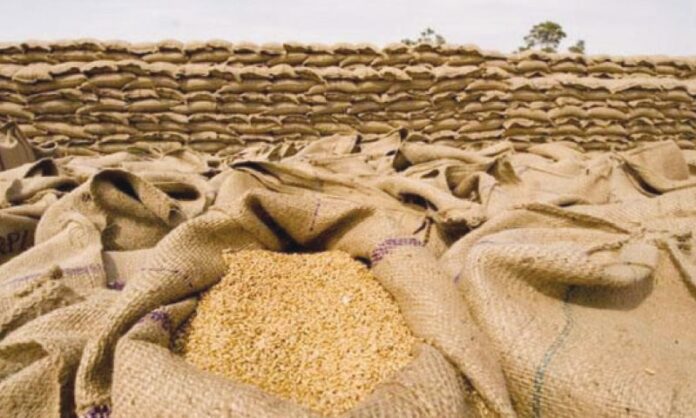ISLAMABAD: Over 3.022 million sacks (bardana) of 100 kg have so far been distributed among farmers across the grains producing areas of the country under current year’s wheat procurement campaign.
The sacks were distributed among grain producers in order to facilitate them to sell their produces on official fixed rates at the centres being established by the government.
The Punjab government has so far provided 1.322 million bags to farmers as the province was tasked to procure about 4.5 million tons of wheat during current procurement season, said Food Security Commissioner Dr Imtiaz Ahmed Gopang.
Talking to APP here on Sunday, he said that the Sindh government was the second largest staple grain producer of the country that distributed 1.7 million bags among its growers as the province would procure about 1.4 million tonnes of wheat during this season.
The Pakistan Agriculture Storage and Services Corporation (PASSCO) has provided 1.094 million bags as it would procure about 1.8 million tonnes of wheat in order to fulfill the domestic requirements as well as keeping the strategic reserves, he added.
However, Gopang said bardana distributions in Khyber Pakhtunkhwa and Balochistan were not initiated, adding that as soon as the harvesting start in these provinces, sacks would also be provided to the farmers of these areas too, he added.
He further informed that 1,162 wheat purchase centers had also been established across country to facilitate the growers for selling their products on official fixed rates.
About national wheat reserves, the official told that by mid of current month the grains stocks were recorded at 0.980 million tonnes.
Wheat consumption for population at the national level was estimated at 26.91 million tonnes, he said adding that therefore, wheat stock at the level of 0.980 million tonnes was sufficient to cater the national consumption for 13 days. However, public sector has procured 45,000 tons of wheat from the fresh harvest, Gopang added.
The quantity would be accounted for after the end of Food Year as on 1st May, 2020, he remarked.




